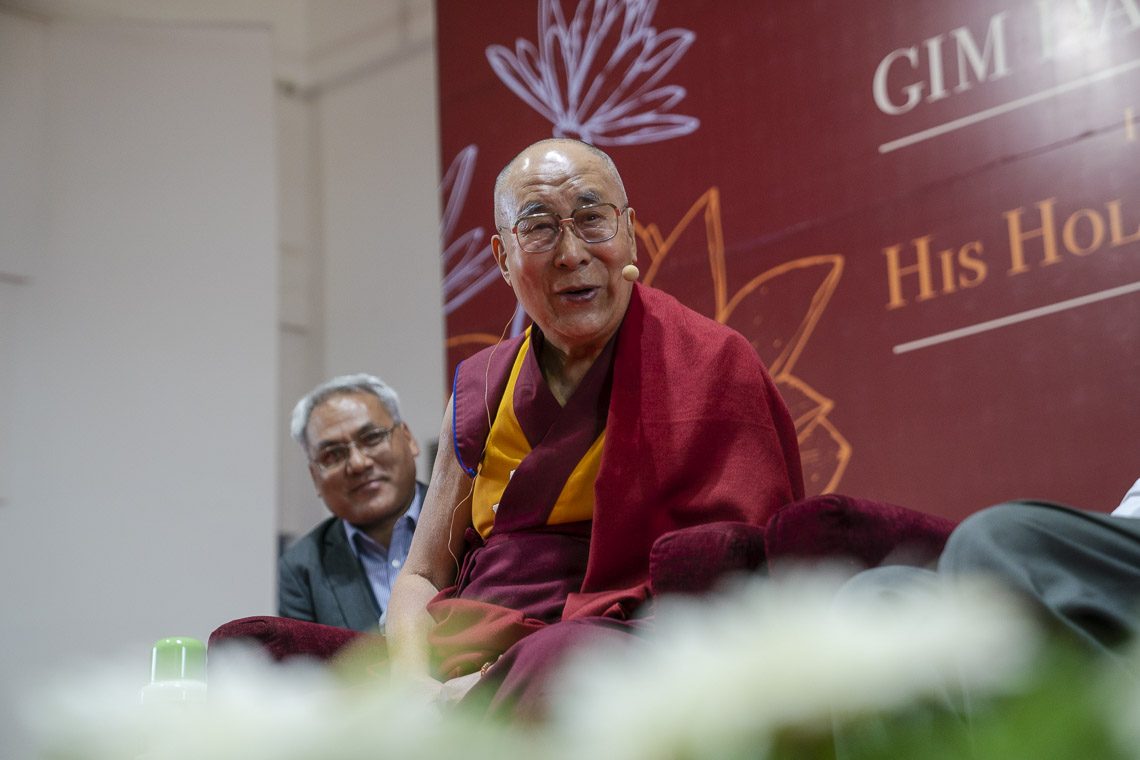
(TibetanReview.net, Aug10, 2018) – The exiled spiritual leader of Tibet has said Aug 8 that the “institution of Dalai Lama” was no longer politically relevant and China was using it for political reasons. He has reiterated that it was, nevertheless, up to the people of Tibet to decide whether the age-old tradition should continue or not. However, the Chinese government was more concerned about this institution than the Dalai Lama himself for political reasons, the PTI news agency Aug 8 cited him as saying.
The Dalai Lama has made the remark during his address at the Silver Jubilee function of the Goa Institute of Management. He gave his keynote address on “Today’s Relevance of India’s Ancient Knowledge”.
The Dalai Lama in 2011 abdicated the political role not just of himself but the very institution he represented in Tibet’s political leadership and governance since the year 1642. He got the exile Tibetan parliament to accordingly amend the Charter of the Tibetans in Exile to vest full political and administrative authorities in the elected Tibetan leadership.
The Dalai Lama has also indicated that there will not be a discussion, or in any case a decision, on the issue of his succession in the upcoming November annual meeting of Tibet’s top Buddhist leaders to be held at Dharamshala. “This November, we are meeting again. In the previous meetings, they had decided that when my age reaches around 90 years, then the group of leaders will decide about the future Dalai Lama,” the report quoted him as saying.
China previously expressed anger over the Dalai Lama’s remarks that his reincarnation, if to be continued, cannot take place in a Chinese controlled territory if the Tibet issue remained unsolved in his lifetime. Then, on Aug 3, 2007, China arrogated to itself the role of being the final arbiter in the matter of the discovery and recognition of reincarnations of Tibetan lamas, issuing a policy document to say such recognitions could only be accorded to those born in a China-ruled territory.
The Dalai Lama has also reiterated his desire for a European Union-like arrangement for China and Tibet for their co-existence. Difficult as it is, independence for Tibet, even if achieved, will be meaningless since it will only cover Central Tibet, the timesofindia.com Aug 9 cited him as saying.
The Dalai Lama was also reported to have expressed his belief during a student interaction that India and Pakistan would have remained one had Jawaharlal Nehru humbly accepted Mahatma Gandhi’s choice of Muhammed Ali Jinnah as the country’s first prime minister.
“Mahatma Gandhiji very much was willing to give prime ministership to Jinnah. But Pandit Nehru refused. I think Pandit Nehru was little bit self-centred: ‘I should be prime minister’. If Mahatma Gandhi’s (wish) materialised then Indo-Pakistan (would have been) united,” he was quoted as saying.
The remark was widely reported in the Indian media.





